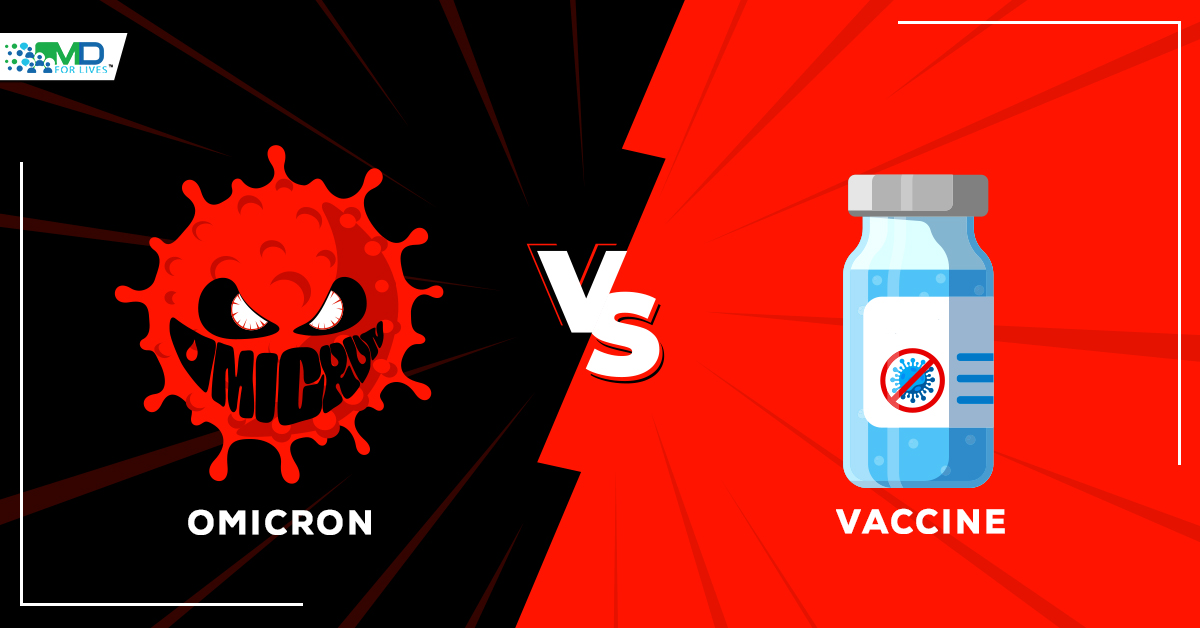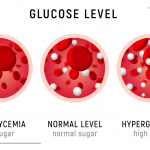The Omicron version spreads faster than the COVID-19 and Delta variants of the original virus. It is indeed spreading quickly throughout the world, and scientists are scrambling to figure out how immunizations will fare against this new coronavirus strain. COVID-19 immunizations remain the most effective public health intervention for protecting individuals against COVID-19 and reducing the risk of new variations arising. This covers the primary series, booster injections, and any extra doses required. COVID-19 vaccinations are presently being studied to see how successful they are at preventing Omicron infection. The Omicron form of infection is expected to result in severe illness, hospitalization, and death. Immunizations are currently available to guard against this. Single-dose or two-dose immunizations have previously offered much less protection than vaccines paired with a booster.
According to laboratory tests in South Africa, a two-shot course of Pfizer Inc.’s vaccine has only 22.5% effectiveness against symptomatic infection with the omicron form, although it can prevent severe illness. Two doses gave 70% protection against hospitalization and 33% protection against infection, according to the researchers. This was down from around 93% and 80% for the Delta model, respectively.
Researchers at the La Jolla Institute for Immunology (LJI) discovered that four COVID-19 vaccines (Pfizer-BioNTech, Moderna, J&J/Janssen, and Novavax) stimulate the body to produce efficient, long-lasting T cells against SARS-CoV-2. These T cells are capable of recognizing SARS-CoV-2 Variants of Concern, such as Delta and Omicron. According to the recent Cell study, fully vaccinated adults had less memory B cells and neutralizing antibodies against the Omicron variant. This conclusion is consistent with preliminary reports of declining immunity from laboratories all across the world. The majority of neutralizing antibodies, or antibodies that are effective against SARS-CoV-2, attach to a region known as the receptor binding domain or RBD. According to the findings, the 15 mutations found in Omicron RBD can significantly impair the binding ability of memory B cells when compared to other SARS-CoV-2 variants such as Alpha, Beta, and Delta. The good news is that neutralizing antibodies and memory B cells are only two components of the adaptive immune response. T cells do not protect against SARS-CoV-2 infection in people who have been exposed to it. Instead, T cells patrol the body and kill infected cells, preventing a virus from multiplying and developing a serious illness. Omicron is more likely to induce a breakthrough infection if there aren’t enough neutralizing antibodies. With fewer memory B cells, the body will be slower to produce extra neutralizing antibodies to combat the infection.
Preliminary laboratory investigations reveal that three doses of the Pfizer-BioNTech COVID-19 Vaccine neutralize the Omicron variant (B.1.1.529 lineage), whereas the other two doses have much lower neutralizing titers. Data show that the third dosage of BNT162b2 enhances neutralizing antibody titers by 25-fold when compared to two doses of the Omicron variant; titers after the booster dose are equivalent to titers reported after two doses of the wild-type virus, which are associated with high levels of protection. Because the mutations in the Omicron variation do not alter 80% of the epitopes in the spike protein identified by CD8+ T cells, two doses may still provide protection against severe illness. The firms are continuing to develop a variant-specific vaccine for Omicron and hope to make it ready by March if an adaptation is required to further boost the level and duration of protection, with no modification predicted to the businesses’ four billion dosage capacity for 2022.
Pfizer CEO Albert Bourla stated that the vaccine targeting the omicron version of Covid will be ready in March, and that production of the doses has already begun. He claims that the vaccination will also target the other circulating variations. Pfizer will have some dosages on hand since certain nations want it as quickly as possible. Their goal is to create something that will provide far superior protection, notably against infections and hospitalizations. Pfizer’s and Moderna’s vaccines are only about 10% effective in preventing symptomatic infection from omicron 20 weeks, according to real-world statistics from the United Kingdom. According to the study, booster doses are up to 75% effective at avoiding symptomatic illness. There is no need for a booster shot that targets omicron because the present boosters are effective against the variant. The business is developing an omicron-targeting booster for this autumn, which will soon enter clinical trials. It’s unclear whether the fourth dosage is required. Pfizer will undertake tests to see if another dosage is required. Despite the fact that Israel has made the fourth dosage of Pfizer and BioNTech’s vaccine available to those over 60, people with weakened immune systems, and health-care professionals. A week after receiving the injection, Israel discovered that the fourth dosage of the vaccination raises antibodies that defend against the virus fivefold.
The best method to protect yourself and others from the Omicron variant is to be vaccinated and keep up to date with COVID-19 vaccinations. Vaccination against COVID-19 is recommended for everyone aged 5 and up. Everyone above the age of 12 should get their COVID-19 immunizations up to date and obtain a booster dose when they are eligible.






